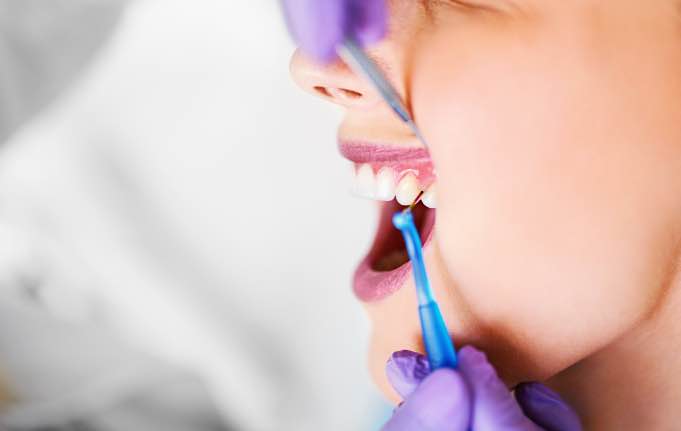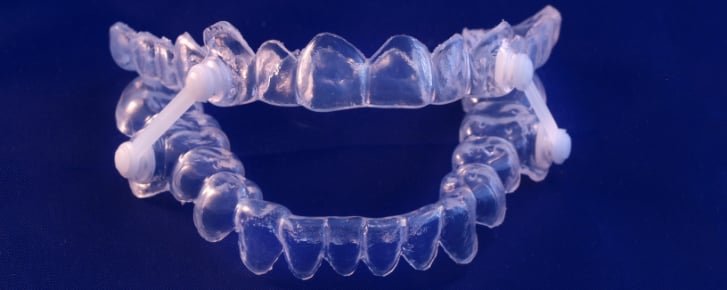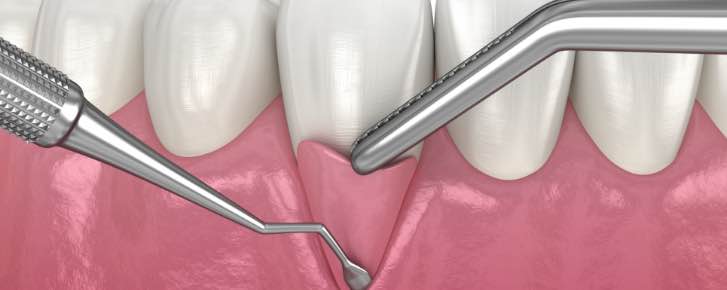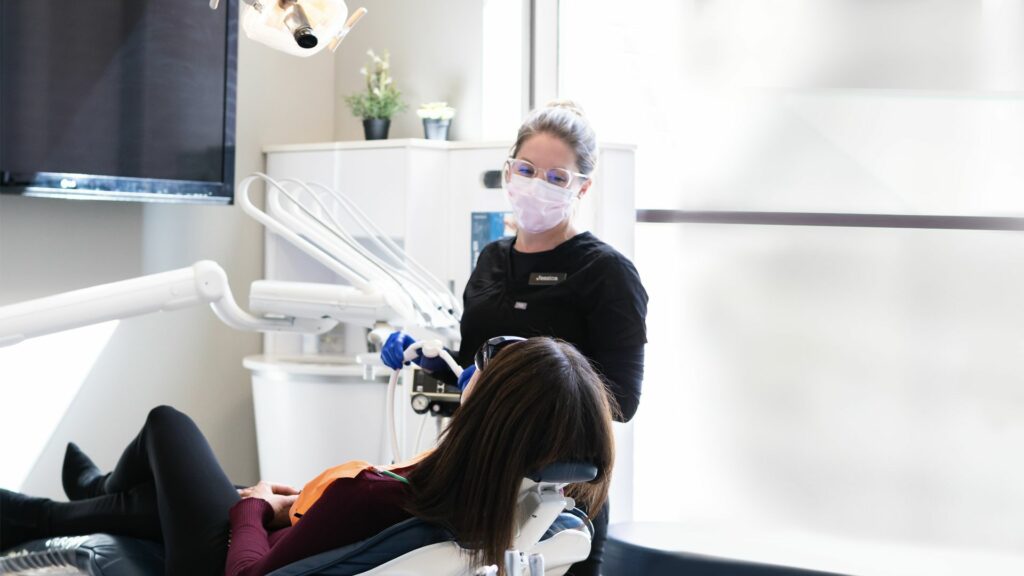Gum grafts
Over time, your gum tissue may whittle down or deteriorate. Our gum grafts procedure provides areas that may be lacking with additional supporting gum tissue, preventing any further recession.
A gum graft procedure can add life and vibrancy back into your gums. And not only will it improve the aesthetics of your teeth, it reduces sensitivity allowing you to indulge in hot drinks or cold treats without any discomfort.
Think gum graft therapy is right for you? Let us know by quickly filling out the form below!

Types of gum grafts offered
Several options are available at Holland Cross Dental to restore your gum line. Your dentist will provide you with all the information for you to make an informed decision regarding your oral health.

AlloDerm® RTM
If you’re looking for an effective way to restore the strength of your gums, AlloDerm® RTM (Regenerative Tissue Matrix) is a great option. This reassuring technique has been around since 1994 and uses sterilised, donated tissue to transform into a material that can help rebuild your gum line without taking from other areas in the mouth. Enjoy strong gums again with this tried-and-tested method.

Harvested tissue therapy
By borrowing some healthy cells from your mouth roof, they can be skilfully grafted to an affected area. This process has proven to be highly successful and efficient.
Concerned about your oral health? Our team will be happy to help, take the next step by filling out the form below.
Benefits of gum grafts
Gum grafts can restore your smile, remove or reduce sensitivity to hot and cold, and just all around make you feel better, less self-conscious, and ready to move on with your life.
They also have the benefit of blocking off access to your roots which may open the door to infection.

Gum graft FAQ
Here are some of the most common questions we get about gum graft therapy.
When can I return to work?
Gum graft therapy should not interfere with your work schedule. There may be some soreness at the harvested and grafted sites for a couple of days but this shouldn’t affect your ability to return to work within 24 hours.
How soon can I start brushing my teeth?
It is important to avoid brushing the affected area for 1 to 2 weeks. After this time we recommend brushing gently for the next week or two following the initial healing period.
What can I do to heal as fast as possible?
It is important to protect the grafted site so the tissue can heal with the existing gumline as smooth and cleanly as possible. It is best to avoid brushing the affected area for a week or two and you may be prescribed an oral rinse to aid healing.
What happens if receding gumlines are left untreated?
The more a tooth’s root becomes exposed the higher the sensitivity to hot and cold.
A receding gumline can also lead to bacteria forming at the base of a tooth and/or eventually lead to infection of the root, which may lead to losing the tooth.
How soon after I’ve had gum grafts can I start eating?
Soft foods such as pudding or mashed vegetables are better for the first few days. We may give you a list of foods to avoid after the procedure.
It is recommended to avoid chewing on the side where we’ve restored your gum tissue. This may not always be possible but can certainly help the healing process.
What are the causes of receding gums?
There are various causes of gum line recession. These include: untreated periodontal disease, such as gingivitis, genetic factors, ageing, smoking, and aggressive brushing.
- Neglected dental care. Good oral health requires regular flossing and brushing. If this isn’t done plaque can form and harden on your teeth. Bacteria can cause infections that attack the gums slowly over time, causing gum disease, which is the number one cause of gumline recession.
- Genetics. Sometimes gum recession is caused by genetic factors. Even in these cases gum grafts can help.
- Brushing with too much force. If you brush your teeth too vigorously it can slowly wear down your gums.
- Teeth grinding. Bruxism, or teeth grinding, can cause unnecessary force upon your teeth and gumline which leads to recession.
- Smoking. People who smoke are at a higher risk of plaque hardening on their teeth. This can lead to gum disease, as mentioned above.
- Oral piercings. The presence of jewelry embedded into the tongue, lips, or cheek can cause wear and tear on the gumline.
- Misaligned bite. If force is distributed unevenly across your teeth it can put unwanted pressure on the gumline which adds up over time.
- Hormonal changes. Women undergo many hormonal changes in their lives that can lead to gumline sensitivity. This increases the likelihood of gum disease.
We want to meet you
At Holland Cross Dental we’ve been doing this for a long time. Nothing makes us happier than seeing our patients smiling again when their confidence is restored after the work is done!
If you think it may be time for us to examine your receding gum line, simply fill out the contact form and one of our team members will reach out to you to set up an appointment.
